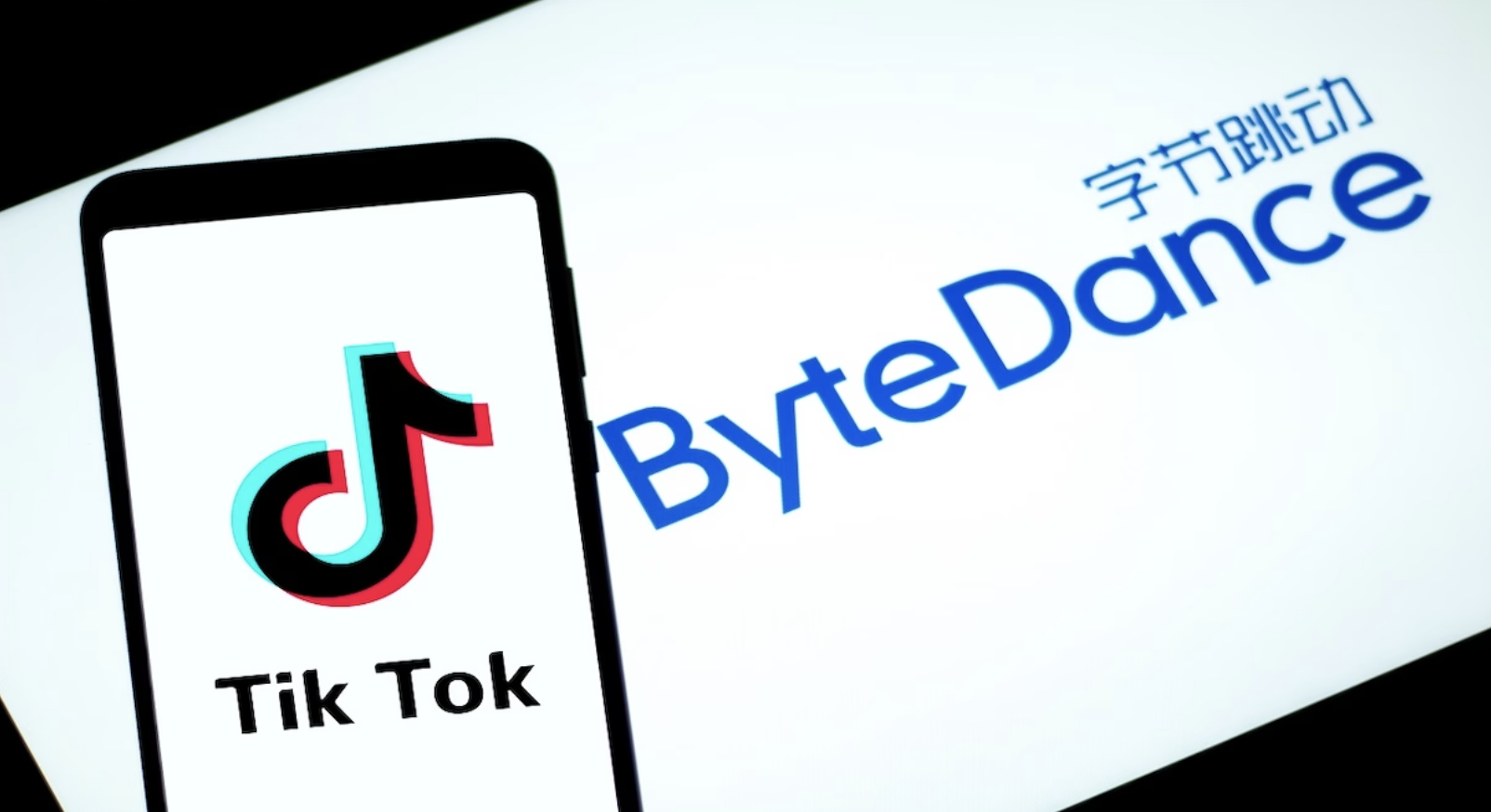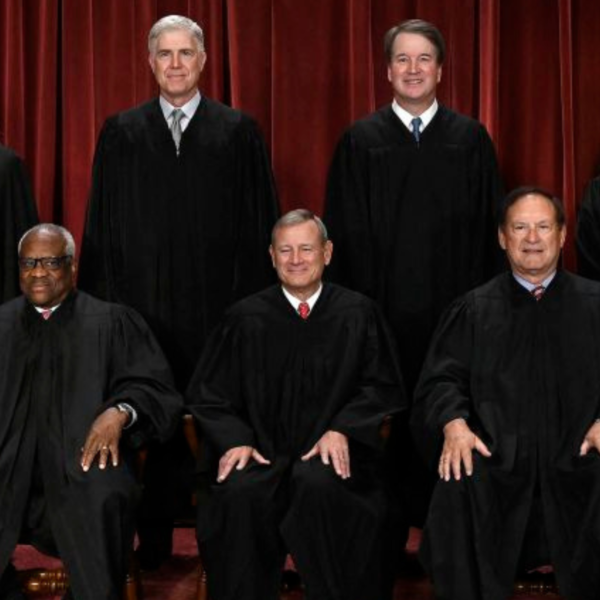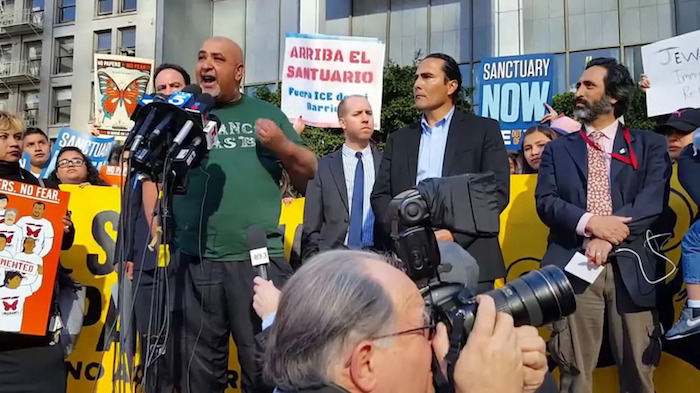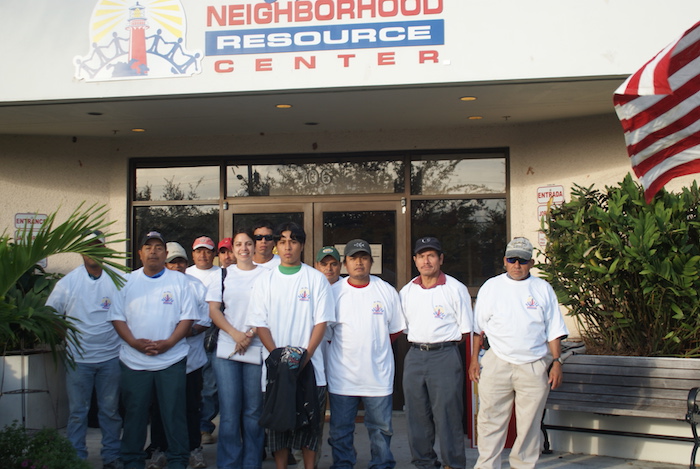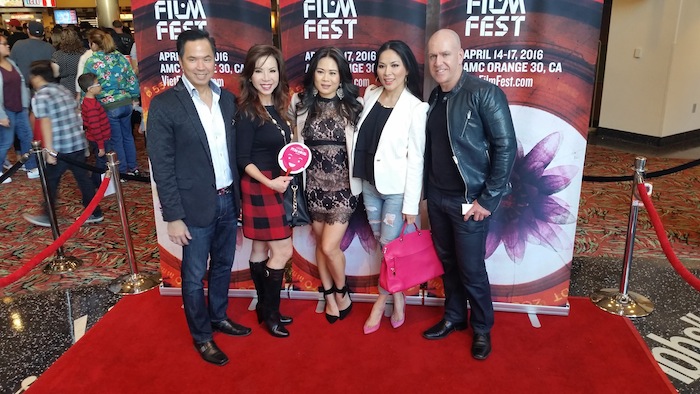Over 150 million Americans regularly use TikTok, an app owned by the Beijing-based company ByteDance, to watch and upload short videos of various content, including pets, lip-syncing grandmas, daredevil stunts, and more. Media houses are increasingly utilizing the platform to engage with younger audiences, and a recent study by Pew Research Center found that almost 25 percent of young users rely on TikTok as their sole source of news. However, amidst the merriment, there are privacy concerns surrounding the app.
Speakers on a recent EMS (Ethnic Media Services) briefing discussed a bill that seeks to ban TikTok in the U.S., the potential violation of freedom of speech, and how the debate over the app may be influenced by a broader anti-China narrative on both sides of the political spectrum. The first speaker, Sen. Mark Warner, D-Virginia, chair of the Senate Intelligence Committee and co-author of the RESTRICT bill, opened the dialogue by sharing his background in the tech industry and his belief in the positive power of technology. He acknowledged the creative aspects of TikTok and the income generation opportunities it provides for some users. However, he highlighted the difference with TikTok due to its ultimate control by ByteDance, a Chinese company that is subject to Chinese law, which requires Chinese companies to comply with requests from the Communist party. Sen. Warner expressed concerns about Chinese tech companies not being obligated to their customers or shareholders, but rather to the Chinese Communist Party (CCP). He also pointed out that the U.S. has not had a sophisticated approach to dealing with technology controlled by foreign governments from adversarial nations, including China, Russia, North Korea, Iran, Cuba, and Venezuela. He advocated for a rules-based approach in addressing these concerns. Sen. Warner acknowledged that there are other technology companies from foreign nations that may raise similar concerns in the future, and emphasized the need for a consistent approach in dealing with them.
As the chairman of the oversight committee in the intelligence community, our approach is to come forward and classify as much information as possible to grant any technology that the Secretary of Commerce deals with, without starting with an outright ban. We believe that this approach makes more sense and avoids inviting retaliation and potential legal challenges that could arise from arbitrarily naming specific technologies like TikTok.
The concerns with TikTok are significant. With 150 million Americans, including children of color, using TikTok for an average of 90 minutes a day, the platform’s algorithm knows users better than they know themselves. The data collected, which is ultimately stored in Beijing, raises serious national security concerns. While there is no evidence of data manipulation by Chinese engineers, the fact that such a massive amount of data on young people could potentially be accessed by an adversarial entity like the Communist Party of China and used for blackmail is a real and tangible threat that cannot be ignored.
Additionally, TikTok’s potential as a propaganda tool is concerning. As young people increasingly rely on TikTok for news, the spread of misinformation and disinformation becomes a significant issue. The idea that the CCP could manipulate content to suit its own agenda, such as spreading false information about geopolitical matters, is alarming and should not be taken lightly.
As someone with a background in technology and who has worked on bills related to privacy, data portability, dark patterns, and kids’ online safety, I am not alone in my concerns about TikTok. Other countries like Canada, the UK, the EU, and Australia have banned TikTok on government phones, and even major media outlets like the BBC have warned their journalists about potential monitoring by the CCP on TikTok.
Despite our efforts to take a rational and bipartisan approach with the support of the administration, TikTok has spent significant resources on lobbying. It is crucial to consider these concerns and take appropriate action to protect our national security and the privacy of our citizens.
The power of TikTok’s lobbying spending has become evident, with sponsored ads appearing on various channels and political figures expressing opinions on the platform. While there may be debates about the role of free speech and misinformation, the fact is that the bill in question does not target individual American users. It is not prohibited to use a VPN to access TikTok, and clarifications can be made through the legislative process if needed. The notion that this bill is akin to the Patriot Act 2.0 is misleading, as it is a rules-based approach that requires due process in court. As someone who recognizes the creative opportunities and livelihoods that TikTok has provided, I am open to further clarifications to protect those interests.
Even if there is a sale of TikTok where the key algorithms are transferred to a non-American company, it could be addressed through other means, such as requiring the algorithms to be owned by an American entity. However, even if TikTok were to be banned, I believe there is a robust market for creative individuals to make a living on alternative platforms. We have seen this in countries like India where replacement platforms have emerged and provided similar benefits. In my conversations with influencers, not one of them has expressed concerns about the ownership of TikTok, as their primary focus is on being able to continue making a living. While there may be some criticism about the potential impact of a TikTok ban, I believe it is not entirely valid, as the market has the potential to create alternatives to meet the demand for creative opportunities.
Kate Ruane, Director of US Free Expression Programs at PEN America, addressed how the bill would impact freedom of speech in relation to restricting TikTok. While TikTok will have its day in court, the government would need to provide additional declassified information to make a successful case. As a foreign-owned company, TikTok still has First Amendment rights. However, I believe there is a difference in kind, and we may agree to disagree on this point. Having witnessed the activities of the Chinese Communist Party, which prohibits American platforms like Facebook, Google, and Twitter in China, I think the harm being caused is significant. Notably, there is no Chinese TikTok, but a Chinese company with similar applications that promote being a good student and a patriotic person in the People’s Republic of China. There have been instances where national security concerns have been raised, such as with Huawei, and countries are now removing their equipment due to these concerns. While TikTok is attempting to address these concerns with projects like “Project Texas” and Oracle, I believe it’s a high bar to prove that data can be protected from potential interference, especially considering the data that may have already been collected. Apart from data protection, I’m also concerned about the potential for TikTok to be used as a propaganda tool or a misinformation tool, given that the algorithm still resides in Beijing and drives the content that users see. This is similar to the Huawei case, where frequent updates could potentially allow malware to be inserted into the technology stack, making the propaganda security risk equal to or potentially greater than the data risk. Additionally, there have been reports of TikTok inadvertently or intentionally monitoring members of the media, further raising concerns. Finally, it’s worth noting that the Chinese government has stated that they would prefer TikTok to be banned rather than giving up the algorithm and locating it in a third country, which has significant implications. When I refer to China or the Chinese Communist Party (CCP), I am specifically referring to the CCP under Xi Jinping.
You know, my concern is not with the Chinese people, the Chinese diaspora, Asian Americans, or Chinese Americans. It is not where our focus should be, and I fear that when people make xenophobic statements without clarifying this, they are playing directly into the CCP’s propaganda. The CCP can then say to the Chinese diaspora around the world, “You see, America is just anti-Chinese per se.” John has been someone who has been good at working with me, and despite challenges with the FBI and others, progress has been made to make it clear that our concern is with the governments of certain countries, not their people. John Yang, a regular speaker at our news briefings, has addressed some concerns.
So when we talk about TikTok, especially in the context of the recent hearing in the House, and how policymakers are scapegoating the Chinese, I do not think Senator Warner should be included in that. I believe he has been very thoughtful about trying to develop a rules-based system for how we approach these issues. I hope more policymakers think about it in that manner and talk about it in that way. I use him as an example of how all of us, whether in the media, policymaking, or opinion-making, should approach this issue. He did not focus on the CEO of TikTok, Mr. Chew, but rather on the potential dangers of the Chinese government. He admitted that some of it may be theoretical, but that we should be allowed to have transparency and for the US government to make its case. These are all useful points. In contrast, what happened at the TikTok hearing before the House is where organizations like mine have significant concerns.
For those who do not know me, I am the executive director of Asian Americans Advancing Justice AJC, based in Washington DC. Our organization is dedicated to advancing the civil rights of Asian Americans and promoting a fair and equitable society for all. We have a specific program in the technology and telecom space focused on platform accountability, algorithms, data actions, and privacy. We also have a program around racial profiling and racial justice, and we are concerned about initiatives such as the China initiative with the DOJ, which we saw as having a harmful effect on the Chinese and Asian American community without benefiting our society as a whole.
We approach this issue with history in mind. The geopolitical tensions with the Chinese government are real, and we should call out the Chinese authoritarian regime on issues such as human rights in Xinjiang, democracy in Hong Kong, and free speech for Chinese citizens. However, we must do so with nuance, as we have seen time and time again in the United States that whenever we have geopolitical tensions with a foreign country in Asia, there is a backlash suffered by Asian Americans here. The most striking examples are the incarceration of Americans of Japanese descent during World War Two based on made-up evidence of so-called loyalty to the Japanese empire, or the persecution, including murders, of South Asian Americans and Sikh Americans after 9/11. Both of these instances had legitimate foreign relations issues, but what we saw was a backlash against the Asian American community.
The backdrop against which we looked at the TikTok hearing was troubling. We were troubled by the fact that Mr. Chew was specifically targeted and portrayed as an emissary or agent for the Chinese government, despite him repeatedly stating that he was a Singaporean citizen. It was a clear attempt to link surveillance concerns with the person at the witness table, Mr. Chew. We also noted that the former CEO of TikTok, Mr. Mike Meyer, who was a non-Asian American, would have likely faced different questions if he had been sitting at the witness table.
During this hearing, what we observed was lawmakers trying to score political points by being seen as tough on China without addressing the actual issues related to TikTok. While there are legitimate concerns about data privacy, data transfer, and algorithms, which were pointed out by Senator Warner, many of these issues are applicable to all social media platforms, not just TikTok. Unfortunately, this nuance was lost in the rhetoric that framed it as a clash of American values and privacy against foreign interests.
It is true that algorithms can have negative impacts, especially on children. However, this issue is not necessarily unique to TikTok. Other studies have documented similar problems in the industry as a whole. But this nuance was overshadowed during the hearing by the pursuit of easy political points. Lawmakers sometimes prioritize making quick and attention-grabbing statements, which comes at a cost. In this case, the cost is borne by the Asian American community, particularly the Chinese American community. We have been witnessing incidents where people, including students and professors, are being subjected to additional background checks and discrimination at airports based on unfounded suspicions and biases, not because of any ties to the Communist party.
The anti-Asian hate that we have seen in recent years, including during the COVID-19 pandemic, is not justifiable. While we can call out the Chinese government for lack of transparency regarding the origins of COVID-19, blaming Chinese society or spreading misinformation about Chinese hygiene is unjust. Such attitudes have led to discrimination and xenophobia, with people being told to go back to their country and being made to feel unwelcome in the United States. It is crucial for all of us to be mindful of these issues in all contexts, including when discussing TikTok.
TikTok is just one example of how tensions have escalated in ways that may have unintended consequences, or perhaps even intended consequences by some. Other recent examples include alien land laws in Texas and elsewhere that restrict people from different countries from owning private residential land based on fears of foreign influence. We need to engage in smart discussions about these complex issues rather than resorting to simplistic talking points. That’s what I urge people to do when examining TikTok, specifically how we approach these hearings and the questions we ask ourselves moving forward.
#TikTokHearings #AsianAmericanCommunity #PrivacyConcerns #DataPrivacy #DataTransfer #Algorithms #SocialMediaPlatforms #AmericanValues #AmericanPrivacy #ForeignInterest #COVID19Misinformation #ChineseAmericanCommunity #AntiAsianHate #UnintendedConsequences #EthnicMediaServices #AlienLandLaws #ForeignInfluence #SmartDiscussions #PrivacyIssues #CongressionalHearings

